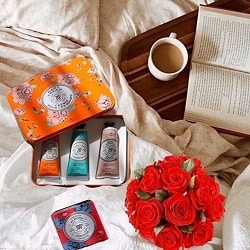DFS was one of the few travel retailers to understand the importance of continuing to engage Chinese customers in the midst of the pandemic
Covid-19 might be driving long-term – even permanent changes to Chinese buying patterns to the detriment of Western beauty and skincare labels. Domenica Di Lieto, CEO, of Chinese marketing consultancy Emerging Communications, explains how the pandemic has forced a consumer shift
In the midst of the Covid-19 crisis most duty-free retailers and brands in the West cut marketing relating to Chinese buyers, some to the point of almost to non-existence.
There have been exceptions. DFS took the opportunity to engage with the locked down Chinese audience eager for relevant engagement. It produced content around care for hands related to repeated virus protection washing, and colour cosmetic tips to enhance features not covered by face masks. It focused on the new trend of ‘electrifying eye make-up’ using bright colours and flattering shapes to create great eye looks and draw attention away from the mask – even showing how different makeup looks could potentially complement different mask styles and shapes.
The retailer also promotionally pushed its long-standing price guarantee, and introduced flash WeChat mini programme sales offering rarely seen discounts on premium brands and hot products in order to clear stock for new season lines. This worked spectacularly well with many products sold out the same day, or prior to the end of sale deadline date.
Spending on cosmetics and skincare during the Chinese lock down increased massively as new sellers and ways of selling emerged. However, this trend is far from being good news for many Western brands.
Even before the virus crisis there were danger signs that some beauty and skincare brands were losing traction with Chinese consumers. Tracking surveys by China Market Research Group show that Millennials and Generation Z consumers no longer automatically opt for overseas brands. Increasingly they prefer home grown options, and anti-Chinese propaganda from the West, the continuing problems many Western brands have in fully localising to China, plus their slow reactions to fast-changing consumer behaviour and sentiment already pointed to long term problems.
The fact that many brands and retailers have pulled marketing during the pandemic has worsened the problem. With time on their hands, Chinese consumers upped their interest in luxury and beauty products, and homegrown producers that were already on the rise have stepped into the void left by the lack of engagement.
Many beauty and fashion brands from the West will inevitably find it difficult to win back their market positions, which is not helped by major and popular changes to social media platforms that have been seized upon by others.
This is the first in a three-part series of articles by Domenica. Look out for more on Chinese beauty and skincare e-commerce tomorrow and an update on the Daigou market in coming days.
You can read more about China’s growing e-commerce on DFNI here .
in Asia/Pacific, Comment & Insight, Cosmetics, Digital Commerce, Lead Stories, Uncategorized June 3, 2020








